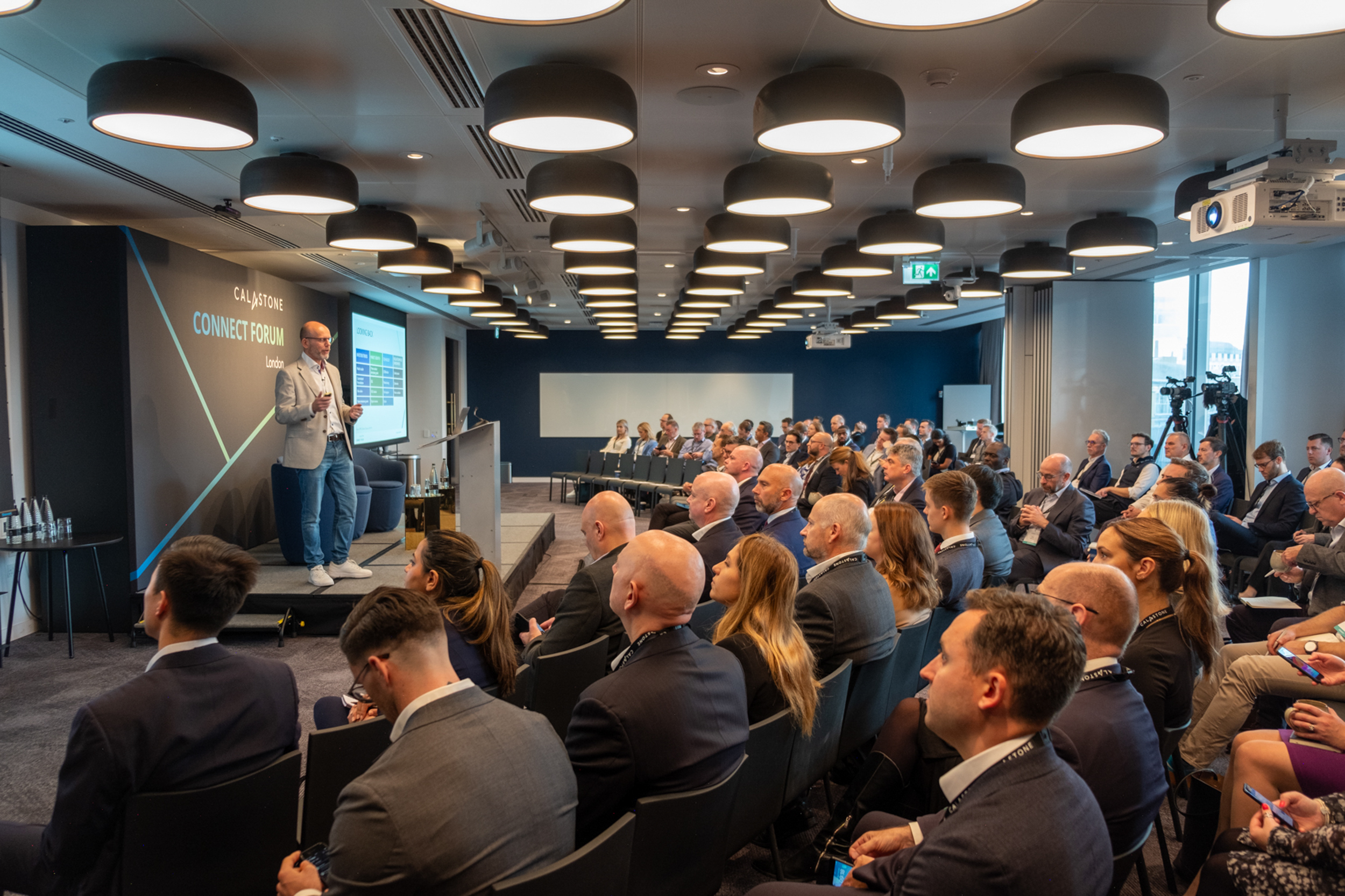As the funds industry gets to grips with new regulation Jon Willis examines the costs and benefits of this burning issue. And he asks what is next.
Almost everyone in European funds companies believes that complying with legislation is now tougher than ever before.
A survey, The Impact of Technology and Regulation on Funds, conducted by Funds Europe in partnership with Calastone and published at the Calastone Connect Forum in London on 19th April 2018, shows that 93% of the people who took part in the poll strongly agreed or agreed that the amount of effort required to comply with regulations in the funds industry has increased in the past year.
“The toughest times”
The hike in regulatory work occurs in what our speaker Martin Gilbert, Co-CEO of Standard Life Aberdeen, called “some of the toughest times” for the global funds industry. In addition to new rules, funds businesses face multiple and simultaneous challenges, including declining returns, rising costs, changing consumer trends and emerging technologies.
Regulatory compliance costs are also high in financial terms. Investment in regulation has continued to grow and the survey identified implementation of MiFID II as the piece of legislation that has created most work for the industry, followed at a distance by GDPR, FACTA and Ucits V.
Already exposed
In itself, this finding is not new. The major issues caused by new legislation affecting the industry were already exposed by the Forrester study The Total Economic Impact™ of Calastone on the Global Mutual Funds Market, which showed regulation to be the key focus of funds companies.
However, the new survey also reveals the impact of regulation on other parts of funds business. Almost three quarters of the participants stated that compliance expenditure results in underinvestment in other parts of the business.
The Customer Experience
Looking globally at industry priorities, the Forrester study demonstrated that, after regulatory compliance, the centre of attention moves to improving the customer experience.
The growing industry consensus that enhancement of the customer experience is paramount is corroborated by the survey. Almost half of the respondents believed regulation creates a better outcome for the end investor, a third offered no opinion, but only a quarter did not see a benefit for the customer.
The next stride forward
The survey establishes that complying with regulation is widely regarded as an important step in improving the customer experience and that investment in technology is the next stride forward.
Many asset managers do not view themselves favourably when it comes to adopting new technology. However, the survey confirms that for funds businesses improved access to data and the appropriate technology deepens their understanding of investors’ needs, and strengthens their response to these needs.
Technology can also help the industry react successfully to changing consumer behaviour and the demands of a new generation – the millennials. Philip Clarke, Partner and Founder of innovation consultancy Hunch, explained at our Connect Forum that typical millennial demands include free or low-cost advice, instantly available and personalised products, and immediate online access to accounts.
Where to invest now?
The survey participants mostly felt that, following regulation compliance, investment is due in back-office technology such as customer-relationship management systems and front-office technology such as data-oriented distribution systems. They foresaw the greatest impact coming from emerging technologies such as distributed ledger (blockchain), artificial intelligence and robo-advice.
Asked where he would invest first if he had an unlimited budget, Martin Gilbert told the Connect Forum he would “build digital capacity”, which he put above market growth and brand development. He also said: “In efficiency, that is where most change will come”, so that we can give clients what “they are asking for.”
So, what does all of this mean for the funds industry? In one sentence: we need to get closer to the customer so that we can really understand what is driving them and ensure that we stay relevant to them.




















